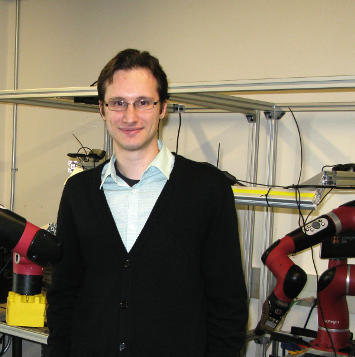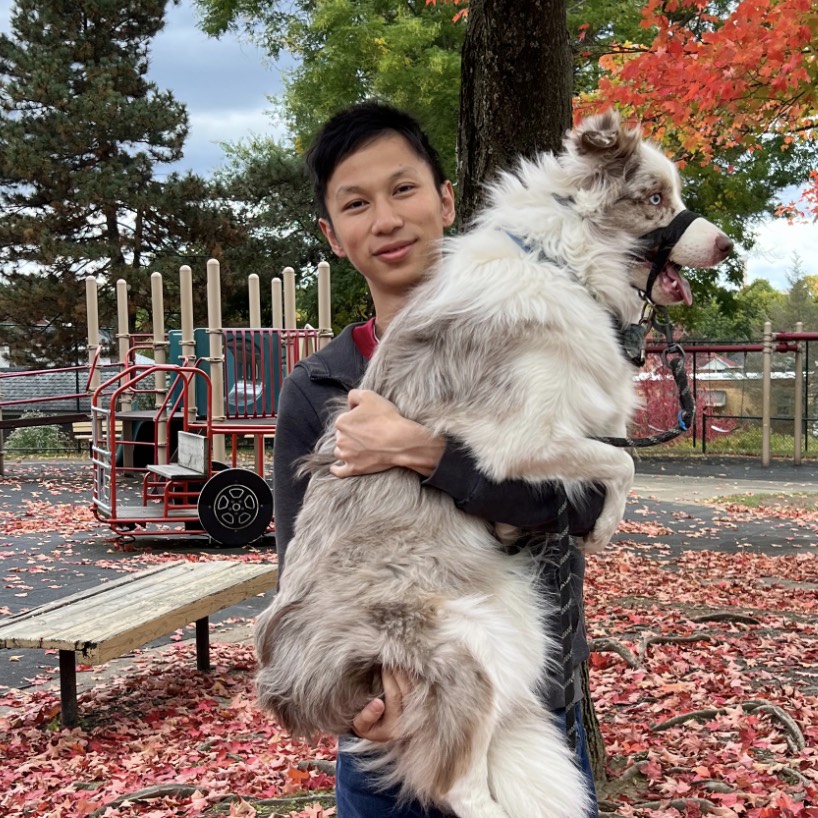Multi-Agent Embodied Intelligent Systems Meet Foundation Models and Large-scale Datasets: Challenges and Future
2025 IEEE International Conference on Robotics & Automation, USA
May 19th, 2025
This workshop aims to explore the innovative integration of “Multi-Agent Embodied Intelligent Systems Meet Foundation Models and Large-scale Datasets: Challenges and Futur”.
This workshop focuses on the intersection of multi-agent embodied intelligent systems, foundation models, and large-scale datasets, tackling the core challenges and future research directions in this domain. Embodied intelligent systems, which are agents capable of learning and making decisions through interactions with their physical environment, are crucial for advancing autonomy in robotics and AI. The integration of foundation models into these systems offers the potential to significantly enhance their ability to generalize across tasks, environments, and agents. However, this raises key challenges, particularly in the context of multi-agent systems where collaborative behaviors and real-world adaptability are essential. A major focus of the workshop will be the development of large-scale datasets tailored for embodied intelligence, as current datasets often lack the richness needed for robust training in complex environments. The workshop will explore how to leverage foundation models and large-scale data to improve the decision-making, adaptability, and scalability of embodied multi-agent systems. Through case studies, technical presentations, and discussions, the workshop aims to address current limitations and set the stage for future advancements in the field.
The workshop will delve into the following pivotal research questions:
- Foundation Models for Embodied Intelligence: How can foundation models, traditionally trained on static or disembodied data, be adapted for embodied intelligent systems, where physical interaction with the environment is critical for learning and decision-making?
- Challenges in Multi-Agent Embodied Systems: What are the unique challenges in coordinating multiple embodied intelligent agents, and how can large-scale datasets and foundation models support better collaboration, communication, and adaptability in multi-agent environments?
- Large-Scale Dataset Creation and Utilization: What methods can be employed to create and curate large-scale datasets that capture the complexity and variability required for embodied intelligent systems, ensuring robustness in real-world applications?
- Scalability of Embodied Multi-Agent Systems: What strategies can be implemented to scale embodied intelligent systems and foundation models across diverse tasks and environments, while ensuring performance, safety, and generalization in real-world applications?
This workshop will benefit the robot learning community by highlighting cutting-edge methodologies, fostering interdisciplinary discussions, and setting the stage for future collaborative research.

Keywords specific to the event
Multi-Agent, Embodied Intelligent, Foundation Models, Policy Generalization, Continuous Learning, Robotic Policy Learning, Data Flywheel, Policy Generalization, Continuous Learning
Call for Papers
Submission Topics
Foundation Models in Robotics:
- Exploring the adaptation and implementation of foundation models to enhance robotic perception, control, and autonomy.
Data Generation and Collection for Robotic Learning:
- Discussing methods for automatic data generation and large-scale data collection strategies that support advanced learning algorithms in robotics.
Reinforcement and Imitation Learning for Physical Robot Control:
- Detailing the use of reinforcement and imitation learning strategies for effective physical control of robots, highlighting successes, challenges, and lessons learned.
Data Flywheel Mechanisms in Robotics:
- Case Studies: Demonstrating the impact of data flywheels on autonomous robotic systems.
- Novel Architectures: Proposing new architectures for data accumulation and utilization in robotic learning.
Continuous Learning in Robotics:
- Techniques and Algorithms: Papers detailing innovative algorithms and techniques for continuous learning in robots.
- Challenges and Solutions: Discussing the main challenges in long-term deployment and solutions to maintain stability and performance.
Scalability of Data-Driven Approaches:
- Cross-Environment Studies: Examining the scalability of data-driven robotic systems across diverse environments.
- Comparative Analyses: Comparing data-driven strategies in different scales of robotic applications, from small to large-scale systems.
Future Directions in Robotic Policy Learning:
- Visionary Predictions: Papers predicting future trends and identifying upcoming challenges in data-driven robotic policy learning.
- Innovative Frameworks: Proposing new frameworks or models that could drive the next generation of robotic systems.
Important Dates
-
Paper Submission Deadline: January 28th, 2025
-
Notification of Acceptance: February 25th, 2025
-
Camera-Ready Submission Deadline: March 9th, 2025
Important Notes
Please submit your full papers according to the following guidelines:
- Format: All papers must be formatted according to ICRA template.
- Length: Full papers should be a maximum of 6 pages.
- Submission Portal: Submit your papers through Openreview System.
Contact
If you have any questions, please contact us at: leningwang@buaa.edu.cn.
Invited Speakers/Panelists

The University of California Berkeley

Technical University of Munich

North Carolina State University, USA

University of California Los Angeles, USA

University of Tübingen

Stanford University

National University of Singapore, Singapore

Google DeepMind

Camel-AI

Stanford University, USA

University of Hong Kong, China
Organizers

Royal Institute of Technology (KTH)

Peking University

The University of Hong Kong

National University of Singapore

Technical University of Munich

The University of North Carolina at Chapel Hill

The University of California Berkeley

Stanford University

Stanford University

Carnegie Mellon University

Then University of Hong Kong

Peking University

Then University of Hong Kong
Proposed format and Schedule
| Time | Event |
|---|---|
| 09:00-10:30 | Invited Talks Session 1 |
| 10:45-12:15 | Panel Discussion |
| 13:30-15:00 | Invited Talks Session 2 |
| 15:15-16:45 | Poster Sessions |
| 17:00-18:30 | Demonstrations and Closing Remarks |